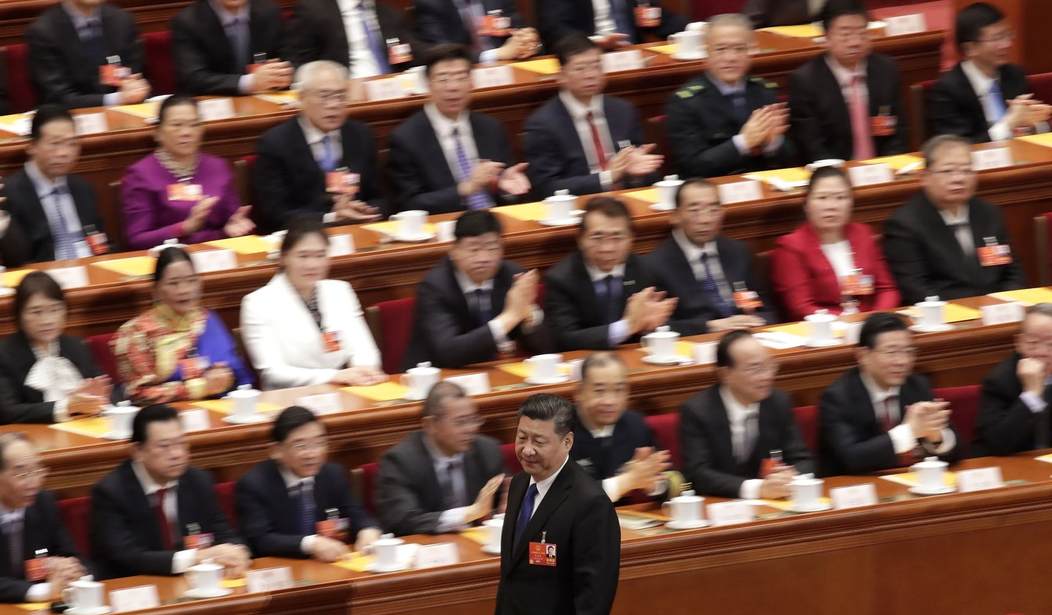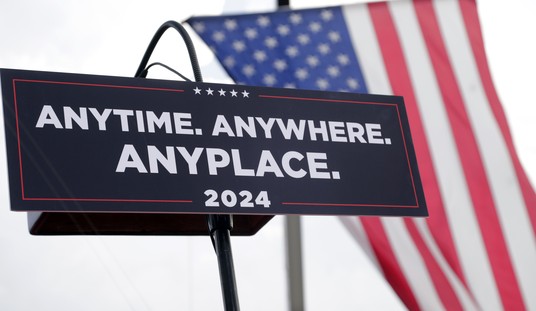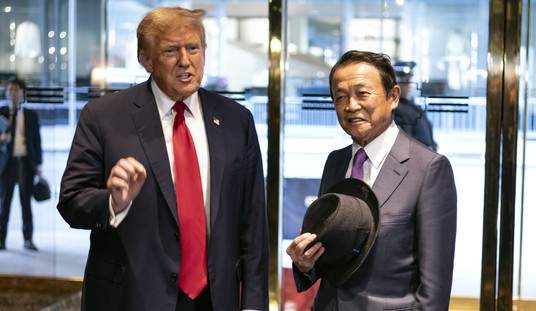China's National People's Congress opened today. This is supposed to be the moment where the government reveals big plans for the coming year. But there were no big surprises this year. Officials are targeting a growth rate of 5% again this year, a figure which some economists think is overly optimistic.
Officials signaled that they were not ready for any showstopping moves to revive an economy battered by a property crisis, the loss of consumer confidence and financial pressures of indebted local governments. Despite their reluctance to spend, China’s top leaders said the economy would grow around 5 percent this year.
The growth target and other policies came in a report given to the annual session of the legislature. It was delivered by China’s No. 2 official, Li Qiang, and is the marquee event in a weeklong gathering dominated by officials and party loyalists...
For decades, China’s economy was synonymous with much higher growth, sometimes even in double digits. But three years of strict pandemic measures took a toll, and a deepening real estate crisis that has led to the collapse of dozens of developers. With China’s leaders short on action, some experts are now skeptical that China will pull off 5 percent growth this year.
“It’s an unsurprisingly unrealistic set of targets,” said Logan Wright, director of China markets research at Rhodium Group, a firm that specializes in China research.
But wait, didn't China just beat the 5% growth estimate it set for last year? Well, maybe. Officially, last year's growth rate was 5.2% but some economists suspect those numbers were made to order. The real numbers may be much lower.
Beijing says that last year the economy grew by 5.2%, which even at that level is low for China. However, some critics argue the real figure could be less than a third of that.
"I think the next five or 10 years is going to be difficult," Andrew Collier Managing Director from China research firm Orient Capital Research told the BBC.
"A lot of economists think the numbers are completely fabricated. The idea of 5.2% or 5.5% growth is much likely wrong. It's more like 1% or 2%," he added.
Whether China is fudging the numbers is an open question but there are signs that China is concerned about anyone looking too closely at what their economy is doing right now. For instance, there was supposed to be a big press conference this week in which Premier Li Qiang would respond to questions about the economy from the foreign press. That press conference was abruptly canceled yesterday.
The press conference was meant to be held during the "Two Sessions" summit, where officials from across China gather to project an image of the unity and strength of the ruling Communist Party.
It has been held for three decades and is one of the few occasions where top officials are subjected to media questions...
Jonathan Ward, Senior Fellow at the Hudson Institute and author of "The Decisive Decade," said the cancellation reflected the Party's increasing unwillingness to deal with "meaningful questions about China's future and overall direction."
"The important questions about China's direction and future are the ones that place the Chinese Communist Party in the worst light," said Ward.
There are other signs as well. China stopped publishing some economic data including youth unemployment figures and it has repeated expanded laws aimed at making it a crime to gather information about the economy. These laws are a warning to foreign companies operating in China not to delve too deeply into just how well (or how poorly) companies are doing. Anything that embarrasses Xi Jinping could be retroactively be deemed an act of espionage and result in a long prison sentence.
Internally, the threats have been much more explicit. China's intelligence agency has been warning people that negative talk about the economy is not acceptable:
China’s top intelligence agency is saying the quiet part out loud as it prioritizes “strengthening economic propaganda and public opinion guidance.” The truly disturbing question, though, is what’s written between the lines in bold font...
If you’re an economist convinced China’s economy is in trouble, do you dare put it in a report or a speech? If you think a mainland company is cooking the books, how do you warn investors without risking a visit from the authorities? Or if a strategist senses a certain mainland property developer might default soon, do you flag those concerns publicly?
Chinese bankers have been warned they are expected to be patriotic, which in China's case means not being so focused on profit and making more room for state-owned firms.
China’s bankers face new orders: to develop a “financial culture with Chinese characteristics”. This ideological campaign emphasises the need for cautious, long-term investments that serve the real economy, as opposed to risky deals that shuffle virtual money around. Unveiled over several days in the People’s Daily, the Communist Party’s official mouthpiece, the campaign calls on financiers to “pursue profits through righteousness, not solely for the sake of profit”, and to be content with “reasonable returns”. Guided by “iron” self-discipline and strict external regulation, finance houses must serve the cause of “high-quality development”. That short phrase is code for a large ambition. It describes a drive by Xi Jinping, the supreme leader, to make China into a high-technology, low-carbon industrial superpower. On the way to achieving this goal, Mr Xi has made clear that central planners and state-owned firms will play a leading role, not least to ensure that wealth is more evenly distributed.
Late last year, Mr Xi chaired a meeting on financial policy that praised the party for “adapting Marxist financial theory to the specific realities of contemporary China”. The mood among economic reformers is bleak. They fear that Mr Xi is taking China back to a party-dominated economy, as if the reform and opening drive unleashed by Deng Xiaoping four decades ago were somehow a mistake. Foreign investors could be forgiven for worrying that the whole country is making a hard left turn, as if Chinese colleagues might turn up for their next meeting in Mao suits.
Xi Jinping hasn't forced bankers to break out the Mao suits yet but that could be coming as the results of the actual economy fall short of whatever growth figures Xi decides are the right look for a recovering China.








Join the conversation as a VIP Member